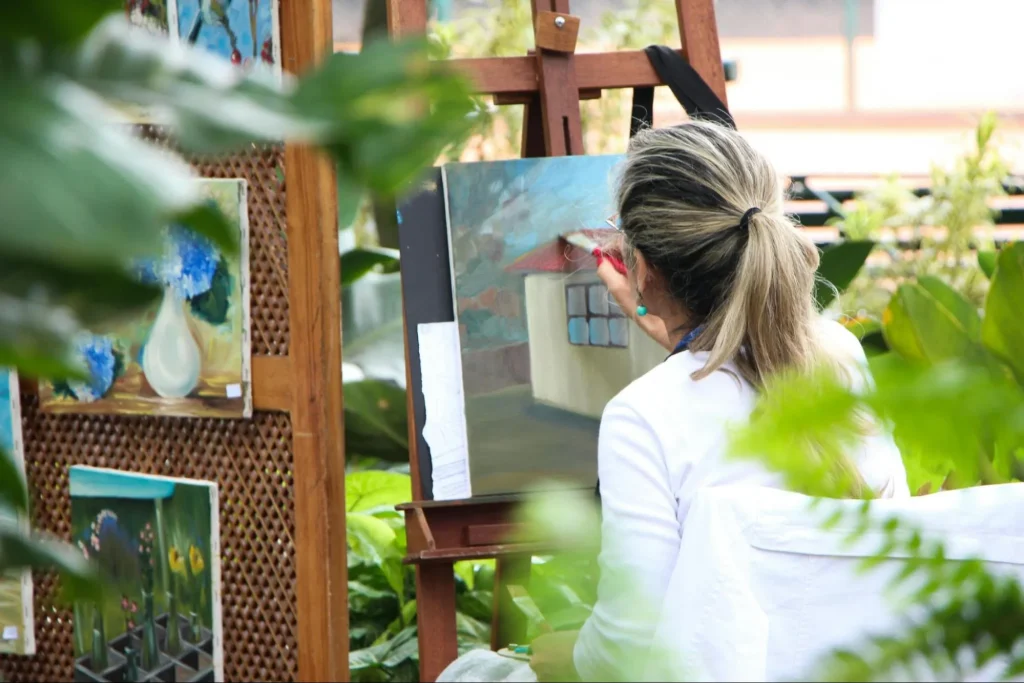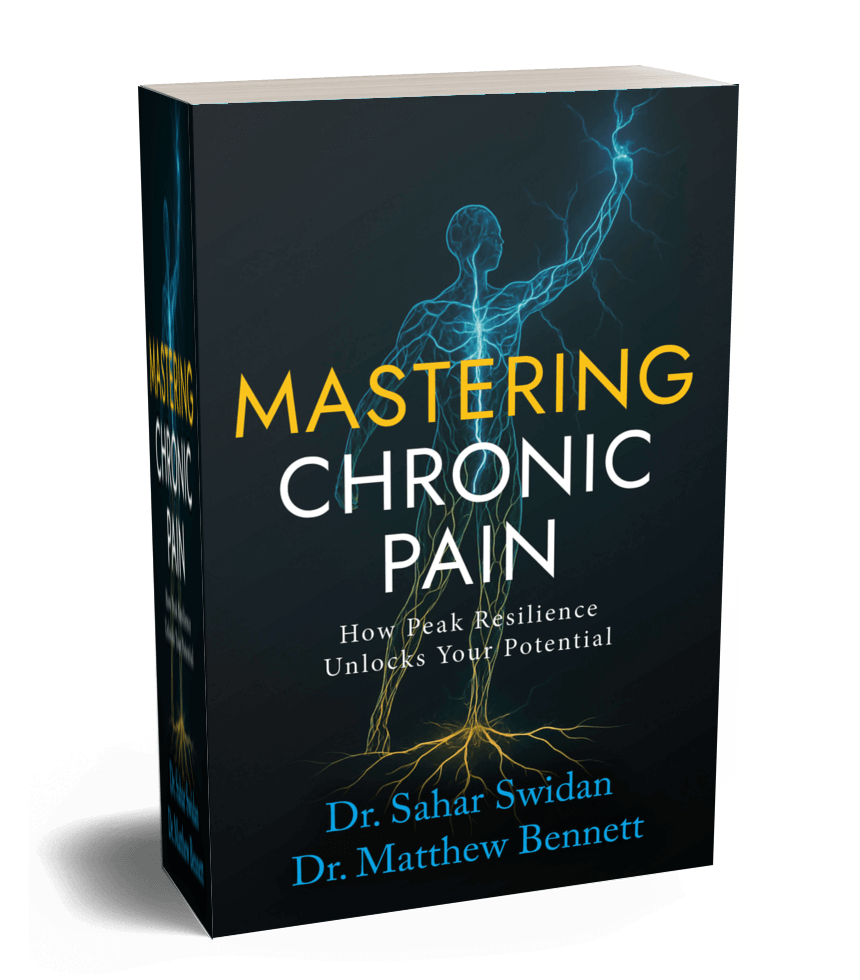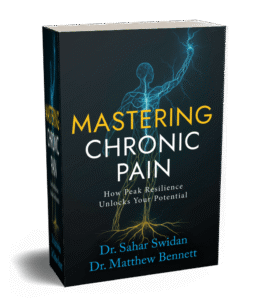Discover the surprising ways that acquiring new skills can boost your mental health. From ukulele strumming to freediving, this article explores ten unexpected activities that offer significant psychological benefits. Drawing on insights from experts in various fields, learn how these diverse pursuits can transform your stress response, enhance work satisfaction, and foster creativity.
- Ukulele Strumming Cultivates Patience and Self-Kindness
- Freediving Transforms Stress Response
- AI Prompting Develops Structured Problem-Solving Approach
- Drawing Boosts Confidence Through Present-Moment Focus
- Advanced Dental Training Reignites Professional Passion
- Active Listening Enhances Work Satisfaction
- Home Repair Skills Build Self-Trust
- Baking Provides Mindful Escape From Overthinking
- Video Editing Offers Meditative Flow
- Nail Art Fosters Creativity and Self-Care
Ukulele Strumming Cultivates Patience and Self-Kindness
When I decided to learn to play the ukulele last year, it started simply as a fun challenge—something lighthearted to counterbalance the intensity of clinic days and late-night charting. I borrowed a small, second-hand ukulele from a friend, watched beginner tutorials on YouTube, and practiced chord transitions in the pockets of time between patients.
Almost immediately, strumming those four strings became a form of moving meditation. My racing thoughts would slow as I focused on the feel of the strings under my fingertips, the pattern of my right hand, and the little squeaks that told me where I needed more precision. I found that, after a ten-minute session, my tight shoulders would loosen and my mind would feel clearer—almost as if each chord change reset my stress levels.
The most unexpected benefit? I noticed my capacity for patience—and for holding space for myself—grew exponentially. In healthcare, we often prioritize rapid problem-solving, jumping from one crisis to the next. But learning a song on the ukulele forced me to embrace “good-enough” moments: a half-formed chord, an off-beat strum, the willingness to tinker until it sounded right. That tolerance for imperfection bled into my work life. I became less hard on myself when I couldn’t chart “perfectly” at 2 AM or when a patient’s situation didn’t resolve in one visit. In short, the ukulele taught me kindness—both in rhythm and in real life.
 Shebna N Osanmoh
Shebna N Osanmoh
Psychiatric Nurse Practitioner, Savantcare
Freediving Transforms Stress Response
One of the most unexpectedly transformative things I’ve done for my mental health was learning how to freedive.
At first, I picked it up on a whim. It sounded cool. It had that dangerous-but-meditative vibe, and I figured, why not? What I didn’t expect was how much it would change the way my brain responds to stress.
When you’re 50 feet underwater with no oxygen tank, your body does what it’s wired to do. Your heart rate slows. Your muscles relax. It’s your mammalian dive reflex kicking in. But your mind still wants to freak out. It whispers panic. It tells you you’re running out of air. And you have to learn not to believe it. That part—learning to sit inside that moment without reacting—rewired something in me.
The real mental health benefit wasn’t just feeling calm while diving. It was realizing how often, in regular life, my brain throws up that same kind of noise. Anxiety about a late email. Overthinking a product launch. Feeling overwhelmed by something dumb and small. Freediving gave me a kind of “internal signal detector.” I could hear the panic without becoming it. That’s a skill I never knew I needed.
It didn’t feel like learning a hobby. It felt like being introduced to a version of myself that could sit still, even when everything inside was trying to bolt.
 Derek Pankaew
Derek Pankaew
CEO & Founder, Listening.com
AI Prompting Develops Structured Problem-Solving Approach
I’ve been slowly and surely learning to properly prompt AI so that instead of getting totally frustrated when technology doesn’t work exactly the way I expect, I’ve learned to think a lot more systematically about breaking down the challenges into clear, logical steps. The benefit has been developing what I would call a more structured patience, where rather than getting super anxious about getting immediate answers, I now enjoy the whole process of iteratively refining questions until I get exactly what I need.
It’s reinforced in me as a leader that most problems aren’t actually complex; they’re just poorly defined. This realization has made me much calmer, even when I’m dealing with franchise operational challenges that would obviously cause stress.
 Todd Bingham
Todd Bingham
Brand President, Top Rail Fence
Drawing Boosts Confidence Through Present-Moment Focus
I picked up drawing during a stressful stretch at work—not to become an artist, but to give my brain something that wasn’t a spreadsheet. The unexpected benefit? It gave me a sense of control and progress without pressure. Every little improvement felt like a win, and that momentum carried into the rest of my day. It also pulled me into the present—no rumination, no future-tripping, just lines on paper. The big mental health boost wasn’t just calm—it was confidence. Learning something new reminded me I wasn’t stuck.
 Justin Belmont
Justin Belmont
Founder & CEO, Prose
Advanced Dental Training Reignites Professional Passion
A few years ago, I decided to pursue advanced dental implant training through the Texas A&M College of Dentistry. Although I had been practicing general dentistry for years, I wanted to expand my ability to restore smiles in a more comprehensive way.
I had expected to learn new skills, but what I didn’t anticipate was the impact it would have on my mental health. As dentists, we’re constantly navigating patient anxiety and high-stakes decisions. It can and does take a toll. However, learning advanced dental implantology techniques challenged me in the best possible way. It reignited my passion for the craft and reminded me why I love using my hands to create something life-changing for someone else.
Even more surprising was the confidence boost. It wasn’t just about adding a new service but was also about proving to myself that I could still grow and master something demanding. The sense of accomplishment helped alleviate some of my stress and gave me a renewed sense of purpose. Learning that skill helped me feel re-energized and more resilient in my practice.
 Dr. Iven Gonzalez
Dr. Iven Gonzalez
Dentist, Owner, Sun City Dental
Active Listening Enhances Work Satisfaction
Learning better communication skills—especially active listening—had a big impact on me. I practiced these skills to improve my patient interactions. What I didn’t expect was how much it would help my own mental well-being. Taking time to truly listen and connect with patients made my work feel more meaningful and rewarding. It reduced stress and built stronger, more trusting relationships, which in turn gave me a greater sense of purpose and satisfaction in my daily practice.
 Azhar Salahuddin
Azhar Salahuddin
Ophthalmologist, Insight Vision Center
Home Repair Skills Build Self-Trust
For a long time, the idea of buying a house felt overwhelming to me. I avoided it because I believed I wasn’t “handy” or capable of handling the responsibilities that come with homeownership—especially fixing things.
At first, every issue—no matter how small—triggered stress. I started small with the home repairs: changing the batteries in my smoke detectors, replacing air filters, and eventually making calls to plumbers or contractors when something felt beyond my skill level. Each time I successfully handled a task, even if it was just making a phone call, I felt a little more confident. What once seemed impossible became manageable.
What surprised me was how much this process impacted my mental health. I felt more grounded and capable—not just as a homeowner, but as a person. Each success, no matter how minor, gave me a sense of mastery and self-trust. I started to believe, “I can figure things out,” which spilled over into other areas of my life.
This mirrors the concept of DBT mastery activities, where individuals practice using new skills and then reflect on how effectively they used them. In Dialectical Behavior Therapy, the focus isn’t on perfection—it’s on effort, progress, and building confidence through repeated practice. By tackling small home projects and gradually increasing my comfort zone, I was unknowingly engaging in my own version of DBT mastery work!
 Sarah Rollins
Sarah Rollins
Owner/Psychotherapist at Embodied Wellness, Pllc, Embodied Wellness, PLLC
Baking Provides Mindful Escape From Overthinking
AI therapy once suggested I try learning something new when I was feeling overwhelmed. It said something like, “A fresh skill can reset your brain. What’s something you’ve always wanted to try just for fun?”
I told it I’d always been curious about baking, so I started small with banana bread. No pressure, no performance, just measuring flour and zoning out to the smell of cinnamon.
The unexpected mental health benefit? It got me out of my head. I wasn’t doom-scrolling or overthinking; I was just… present. Something about mixing ingredients and creating something real made the day feel softer. Honestly, it was the best therapy session I ever had with a loaf of bread.
 Ali Yilmaz
Ali Yilmaz
Co-Founder&CEO, Aitherapy
Video Editing Offers Meditative Flow
For me, it was learning how to do basic video editing. Sounds random, right? But I picked it up during a slow season when client work wasn’t as intense. What surprised me was how meditative it became—just cutting clips, syncing them to music, getting into that deep flow. It forced me to focus on something non-verbal, which really helped quiet my brain after a day full of strategy calls and writing.
It also gave me this weird sense of control. Unlike SEO, where results take weeks or months, with editing, I could make something polished in a few hours. That instant progress did wonders for my motivation.
Now, I suggest every growth marketer learn one creative skill that isn’t tied to KPIs. Not because it’ll make you better at marketing (though it might), but because it helps you reset mentally—and that’s when your best ideas usually show up.
 Kristiyan Yankov
Kristiyan Yankov
Growth Marketer, Co-Founder, AboveApex
Nail Art Fosters Creativity and Self-Care
Learning new skills can definitely impact our mental health for the better. Learning new skills builds confidence, brings us to the present moment, and engages a sense of play. A skill I learned that improved my mental health is painting my nails. It allowed me to care for myself, push my skills to try new and more complicated art, and made me flex creative skills I didn’t have before.
 Riley Brown
Riley Brown
Counsellor, Riley Brown Counselling LTD













